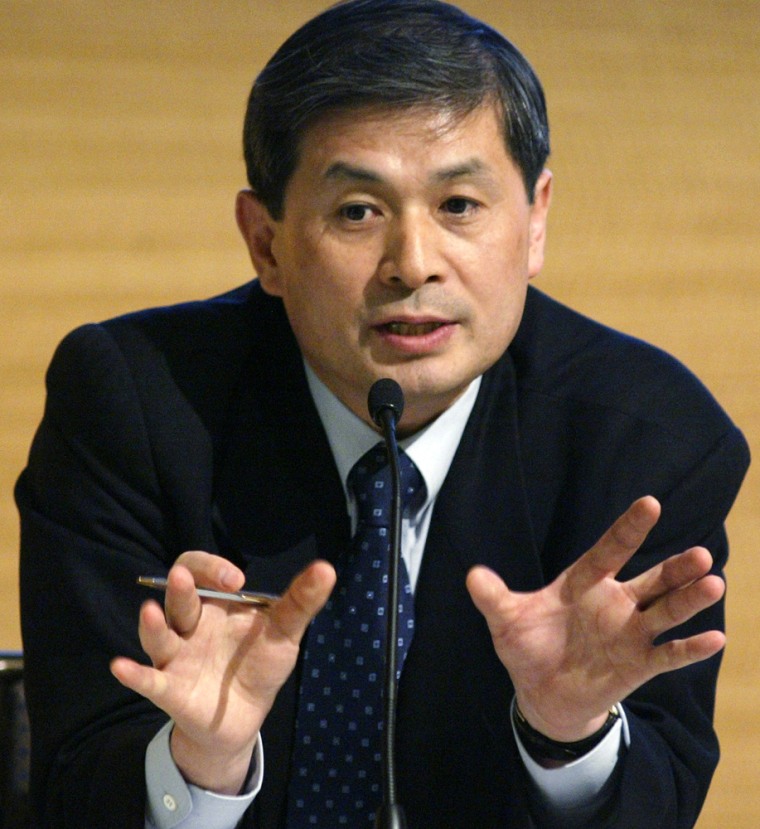Politicians, philosophers, lawyers and scientists have been arguing about it for years, but therapeutic cloning -- making a human embryo to use in medical research -- is now a reality.
Korean scientists announced they had made not one but 30 clones, not to grow into human babies but to use as a source of embryonic stem cells. These are the body’s master cells, which, when taken from embryos, have the potential to create brain, muscle, blood, organ and a variety of other cells.
Supporters say the technique, a cloning method called nuclear transfer, can transform medicine, allowing doctors to grow custom-made and perfectly matched organ and tissue transplants for their patients.
Calls for ban on all human cloning
Opponents say the practice is murder because it involves the creation and destruction of a human embryo and they fear that the science could lead to the cloning of babies.
“Reports of human cloning experiments undertaken in South Korea underscore the need for a comprehensive national and international ban on all human cloning,” Sen. Sam Brownback, a Kansas Republican, said in a statement.
“Human cloning is wrong. It treats the youngest of humans as mere property and should be banned.”
Some ethicists agreed.
“Controversy continues to swirl around killing even long-abandoned human embryos for research,” said John Kilner, president of the Chicago-based Center for Bioethics and Human Dignity. “The South Korean experiment disturbingly goes significantly further. It produces human embryos for the explicit purpose of fatally mining them to obtain bodily materials for experimental purposes.”
Looking elsewhere for a cure
Brownback belongs to a spectrum of opponents, including President Bush, who instead support research involving adult stem cells, which are a different kind of master cell found in the blood and other tissues.
Some experiments have suggested that these cells could be coaxed into forming the new tissues needed to treat disease.
But scientists argue that human embryonic stem cells may offer the best hope for curing diabetes, Parkinson’s and a range of other incurable and fatal diseases.
Dr. Irving Weissman of Stanford University in California said no one had been able to transform completely an adult stem cell and said it was important to continue along both routes --experimenting with adult and embryonic stem cells.
“We need to understand how to transform cells,” Weissman said. If experts understand this, they may be able to find a way to get the most malleable stem cells without having to clone an embryo.
Disease advocates agree -- and note that human embryos are destroyed daily in fertility clinics, in abortions and in natural miscarriages.
“We don’t care where they find a cure for this disease,” said Bob Goldstein of the Juvenile Diabetes Foundation.
Bush has banned the use of federal funds to experiment on human embryos, with the exception of a few existing stem cell lines taken from embryos left over from fertility treatments.
Research race
U.S. scientists complain this leaves the field open to other countries and say federally funded research can be controlled and regulated.
“Mr. Bush said what the public sector could do and what NIH (the National Institutes of Health) could do and at the same time said to the private sector, ’We don’t care what you do,”’ Goldstein said in a recent interview.
Both sides agree that cloning to make babies is wrong.
“I think it is absolutely imperative that we pass laws worldwide to prevent human reproductive cloning,” said Dr. Robert Lanza of Advanced Cell Technology, a Massachusetts company working to clone human embryos for stem cell research.
Two groups have claimed to have cloned human babies -- a religious group called the Raelians and Kentucky fertility specialist Dr. Panos Zavos. Neither has offered any evidence to support the claims and Zavos said last week a woman he implanted with a cloned embryo miscarried.
